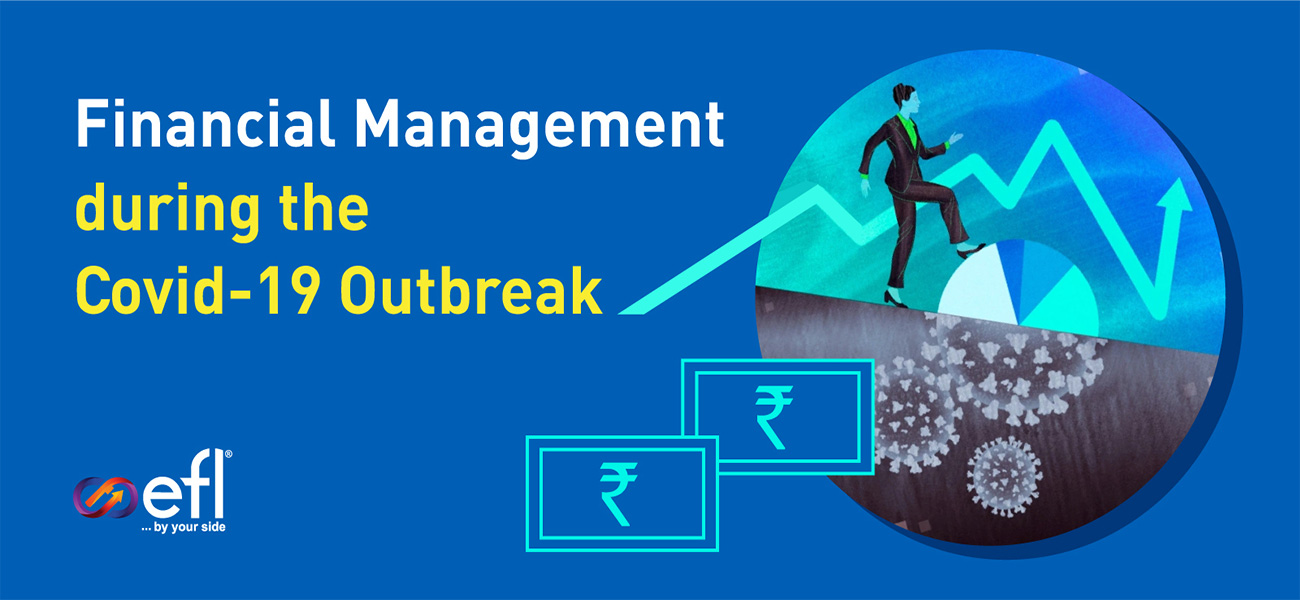By admin | March 19, 2021
Covid-19 and Businesses
The Covid-19 pandemic has created an uncertain situation for businesses and there is no clarity on how long it will last. Several countries have gone into lockdowns and economic activities are certainly suffering. Striving in this environment asks for MSMES and other businesses to make careful decisions in terms of both risk mitigation and recovery planning. As the situation changes, the business environment will change and businesses will have to reconsider and reinvent their plans. Here are some tips to make the most of financial management during this outbreak.
Avail the EMI moratorium
The Reserve Bank of India unveiled the EMI Moratorium scheme in March 2020. Under this scheme the banks & NBFCs are offering a three-month moratorium to borrowers. This is valid for loan instalments starting March, and availing will not affect your credit score. Instead, you will be required to pay an extra interest for three months to your lender, due to deferring EMIs.
In case you have any ongoing loans availing this scheme may help free up cash in the near term. This cash can be used towards more pressing needs where delaying payments might impact your business.
Monitor the volatile economic environment
With a severe lockdown in place business activity the world over has come to a near standstill. In this scenario economic volatility is expected. But as an MSME owner it is important that you track these changes and try to analyse how it can impact your business. For example the current volatility in global oil prices is likely to impact Oil Companies as well as those players who are tier 1 suppliers to these companies. In effect this can impact all MSMEs who work with these companies. In such situations it is essential for these MSMEs to take proactive steps to diversify their portfolio.
Cash and Debt Management
Prepare a cash flow statement considering the financial effects of lockdown and that this crisis will last for six months. Monitor your cash flow and try to identify areas of improvement. Analyse your regular expenses and consider what can be reduced, rationalized or cancelled, in order to improve efficiency. Make sure you do not use your credit card for business purposes either.
Research and identify various lenders who can provide you working capital loans once lockdown is lifted. Keep in touch with your debtors and try and get your money back in due time. It is also advisable to try and negotiate more favourable credit terms with your suppliers to ease the stress on your cash flow.
Identify unprofitable products and customers
MSMEs need to assess the customers they want to work with once the lockdown ends. It is always better to stay with customers who are willing to pay advances and avail shorter credit periods. This helps MSMEs manage their liquidity situation more efficiently
When resources are limited, it is also important for MSMEs to consider the profitability of individual customers and products. Profitable customers and products need and deserve investment, while unprofitable customers and products require detailed analysis to determine whether or not to continue with them.
Focusing on the quality of business, having the right plan of action, and tracking your key indicators and taking decisions accordingly is the way to go during an economic slowdown. EFL provides the financial aid tailored to specific business requirements, with 28 years of helping businesses create success stories.
Right from business loans and working capital loans to emerging enterprise loans, EFL covers all aspects of what a business might need to thrive in the competitive landscape.
With 7500+ MSMEs served and 15000+ machines financed, EFL is the partner you need for your success story.




